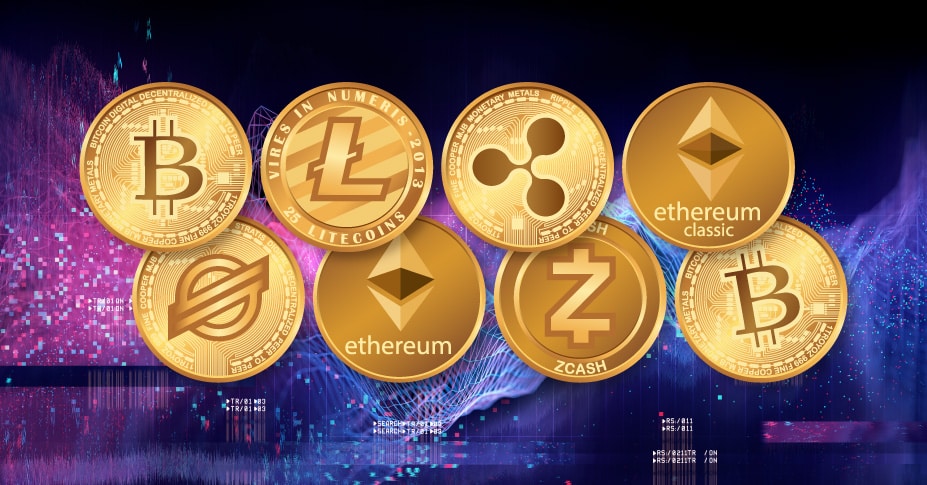Types of Cryptocurrency Explained

A recognized form of virtual or digital money takes the form of digital tokens. On the Amon-Avis review platform, feedbacks from people reveal that some cryptocurrencies, such as coins, are tangible, though most do not have a physical presence. Digital currencies are designed as money. Digital currencies use complex cryptography, which monitors and records purchases and limits spending.
In addition to this important “crypto” feature, there is also a shared commitment to decentralization. The team’s built-in mechanisms usually develop cryptocurrencies for issuance and other controls. This piece of article will guide you on the different types of cryptocurrency available. You can as well check people’s feedback on these types from La Formule Française.
- Bitcoin (BTC)
Bitcoin is generally considered one of the original cryptocurrencies. The program was licensed as software in 2009. The paper’s author is known as Satoshi Nakamoto, but his identity is not known. Bitcoin Cash is one of the earliest successful ones and most successful coins to have split from Bitcoin. The Bitcoin network can transmit information at an average rate of one megabyte per second. (MB).
Bitcoin Cash proposes increasing the block size from one megabyte to eight megabytes, enabling faster transaction speeds on the network. It removes all SegWit changes and other adjustments to the block size. As of January 2021, an estimated USD 8.9 billion markets exists, with a Bitcoin Cash token valued at approximately $513.45.
How bitcoin works
Using Bitcoin, users can reliably make transactions with other users. Users can see all past transactions or keep track of all old transactions. An entity can only decrypt a coin by possessing a unique decryption key that corresponds to only that coin.
- Litecoin (LTC)
Litecoin formed in a similar time as Bitcoin and is often referred to as the “silver to Bitcoin’s gold.” Former Google software engineer Charles Lee designed ERC20. Litecoin is an open-source global payment system that is not controlled by a central authority. It implements the script proof of work algorithm, which consumer-grade CPUs can decode. The Litecoin network is faster than the Bitcoin network, which has speedier network confirmation times and faster.
Similarly, Litecoin is increasingly preferred by merchants who accept cryptocurrency. As of January 2021, Litecoin was the sixth-largest currency globally, with a market cap of $153.88 per token.
- Ethereum (ETH)
One of the first alternative cryptocurrencies to be listed, Ethereum, allows developers to use smart contracts without any downtime, control, fraud, or interference from third parties. Ethereum is a type of cryptocurrency run on a distributed blockchain platform. It was established in the year 2015. The purpose of the Ethereum network is to provide decentralized financial services for anyone, free of charge. This aspect emphasizes the potential implications for people who don’t possess government-issued identification or don’t have access to banks and financial services institutions.
Ethereum is a platform with applications that can run on its token. Ether is a virtual currency used on the Ethereum system and is being sought by developers to develop new applications or investors for use in purchases of other virtual currencies. In contrast to Bitcoin, Ether is currently the second-largest digital currency by market cap. In January of 2021, Ethereum was the most valuable cryptocurrency with a market cap of $138.3 billion and a per value of $1,218.59. Ethereum will move to proof-of-stake, not proof-of-work, in 2021.
- Stellar (XLM)
Stellar is a blockchain that provides a platform for small businesses to conduct day-to-day commercial transfers. Direct financial transactions that used to take several intermediaries, several days, and cost a good deal of money can be done nearly instantaneously with no intermediaries and cost little to nothing to the parties involved.
The Stellar Foundation was founded by Jed McCaleb, a co-founder of Ripple Labs and Ripple. He eventually left his position as the head of Ripple Labs to start a new company called Stellar. Stellar Lumens are currently valued at $6.1 billion, and they are used to purchase something for $0.27.



.jpeg?width=682&height=455&name=AdobeStock_295048993%20(1).jpeg)

